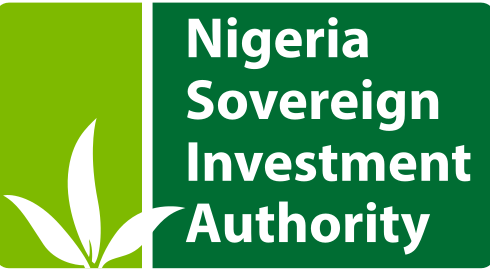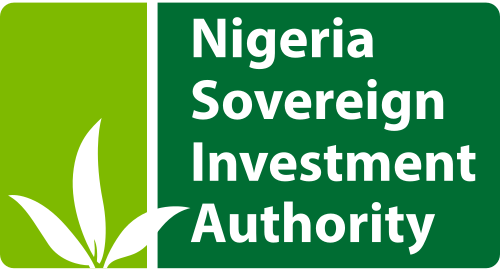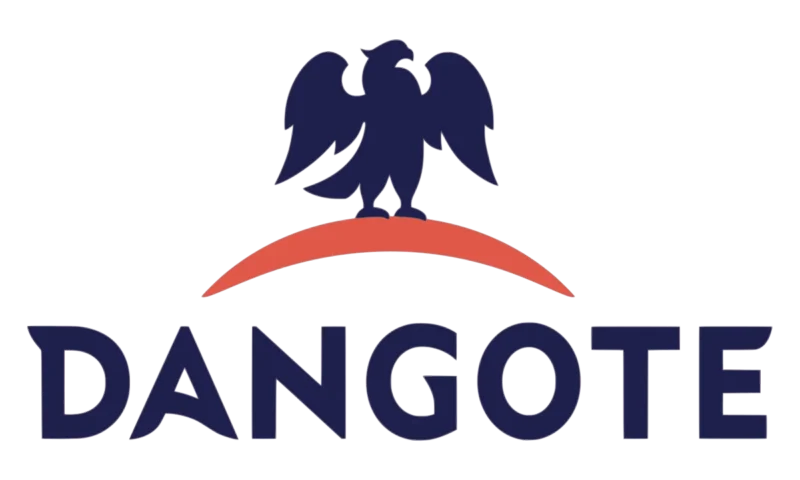2025 in Review: How NSIA deepened Its role as Nigeria’s Systems Builder
By Foster Obi

More than a decade after its establishment, the Nigeria Sovereign Investment Authority (NSIA) is steadily redefining its place in Nigeria’s development architecture, evolving from a stabilisation and savings vehicle into a strategic national systems builder addressing structural constraints across key sectors of the economy.
Created by an Act of Parliament to save for future generations, provide fiscal stabilisation and invest in critical infrastructure, the Authority has, in recent years, expanded its mandate in practice by blending financial discipline with targeted interventions in healthcare, energy, agriculture, housing, innovation and capital markets. In 2025, that trajectory became more pronounced.
The Authority strengthened its standing as one of the world’s best-governed sovereign institutions, attaining a 100 per cent rating on the Global SWF Governance, Sustainability and Resilience Index, while maintaining its 9/10 score on the Linaburg-Maduell Transparency Index. The ratings reinforced NSIA’s growing reputation for accountability, responsible investing, and institutional integrity.
Financially, 2025 marked a defining phase. Although established with dollar-denominated capital, NSIA reports in naira in line with its enabling Act, while also presenting results in U.S. dollars to reflect underlying value amid currency volatility. By June 2025, net assets crossed the $3 billion threshold for the first time, supported by government contributions and retained earnings. Core Total Comprehensive Income rose by six per cent year-on-year to ₦202.10 billion in the first half of the year, while net assets grew from $1 billion at inception to $3.10 billion, representing a compound annual growth rate of 9.9 per cent across multiple economic cycles.
Beyond balance-sheet strength, NSIA continued to deploy capital to deliver measurable development outcomes. In the innovation space, the Authority partnered with the Japan International Cooperation Agency (JICA) to establish the $28 million Impact Innovation Fund, combining concessional financing with NSIA capital to support early-stage technology startups addressing social challenges. The Fund, which progressed through key legal and operational milestones in 2025, is designed to tackle Nigeria’s persistent early-stage financing gap and scale commercially viable solutions.
This intervention builds on the momentum of the NSIA Prize for Innovation (NPI), which has become a major pipeline for young entrepreneurs. The third edition attracted over 5,000 applications nationwide, with more than $250,000 awarded to top innovators. Many beneficiaries have since attracted follow-on funding, strengthening confidence in Nigeria’s emerging innovation ecosystem.
In healthcare, NSIA expanded its footprint through its subsidiary, MedServe, following its appointment by the Federal Ministry of Health as project manager for upgrading oncology and nuclear medicine facilities in six tertiary hospitals. In 2025, three upgraded oncology centres were commissioned at the University of Benin Teaching Hospital, University of Nigeria Teaching Hospital, and Federal Teaching Hospital, Katsina. Patient treatments commenced at UNTH, while training programmes were scheduled to begin at the other centres. The projects build on NSIA’s existing oncology and diagnostics facilities and are expected to significantly improve access to quality cancer care.
To complement infrastructure with human capital, the Authority continued its $2 million oncology training programme, launched in 2024 in partnership with global health organisations. By 2025, over 186 clinicians had undergone specialised training, delivering more than 10,000 hours of capacity building and strengthening the foundations of sustainable cancer care delivery nationwide.
Energy access remained another focal area. Through the Renewable Investment Platform for Limitless Energy (RIPLE), NSIA advanced investments across the renewable value chain, from diesel displacement to solar manufacturing and battery storage. RIPLE builds on the 10MW Kano Solar Project, Nigeria’s largest grid-connected solar plant. In parallel, the Distributed Renewable Energy Fund, launched in 2025 with partners including Africa50 and the International Solar Alliance, aims to unlock private capital for off-grid and mini-grid solutions in underserved communities.
In agriculture, NSIA’s stewardship of the Presidential Fertiliser Initiative (PFI) continued to yield structural gains. Since assuming management in 2017, the number of operational fertiliser blending plants has grown from four to over 80, supporting more than 100,000 jobs and producing an estimated 130 million bags of fertiliser. In 2025, NSIA worked with the Ministry of Finance Incorporated to transition PFI-NPK Ltd into a new governance framework, safeguarding the programme’s long-term sustainability.
Housing also featured prominently. Under the Renewed Hope Cities and Estates Initiative, NSIA supported the development of affordable housing in Kano, with the project reaching 75 per cent completion by the third quarter of 2025 and running ahead of schedule. This complements the Authority’s earlier role in establishing institutions such as the Nigeria Mortgage Refinance Company and the Family Homes Fund.
In financial markets, NSIA helped deepen credit access through its contribution to the ₦100 billion capitalisation of the National Credit Guarantee Company, alongside other public institutions. The initiative builds on NSIA’s earlier success with InfraCredit, which has mobilised over ₦300 billion for infrastructure financing, and the Green Guarantee Company, a climate-focused guarantor developed with international partners.
The Authority also played a policy-shaping role, contributing to the development of Nigeria’s National Carbon Market Framework, approved in November 2025, positioning the country to attract climate finance and generate high-integrity carbon credits.
On the continental stage, NSIA hosted the fourth Africa Sovereign Investors Forum, culminating in the launch of the ASIF Investment Platform, co-stewarded with Morocco’s Ithmar Capital, to mobilise capital for infrastructure, energy, agriculture, and food security across Africa.
Cumulatively, NSIA’s interventions have created more than 245,000 jobs, reflecting an approach that views national development as a function of resilient systems rather than isolated projects.
As 2025 draws to a close, the Authority says it is well-positioned to benefit from an improving global outlook and enters 2026 with a strong financial and strategic footing. For NSIA, the numbers tell only part of the story; behind them lie improved healthcare outcomes, empowered entrepreneurs, expanded energy access, and stronger institutions—evidence of a sovereign wealth fund increasingly aligned with Nigeria’s long-term development priorities.



 Nigeria’s exports to Africa in the third quarter of 2025 surged 97.16 per cent year-on-year to N4.9tn, signalling what stakeholders describe as a realignment toward emerging markets, particularly intra-African trade and the BRICS bloc.
Nigeria’s exports to Africa in the third quarter of 2025 surged 97.16 per cent year-on-year to N4.9tn, signalling what stakeholders describe as a realignment toward emerging markets, particularly intra-African trade and the BRICS bloc.
 The Nigerian Exchange closed last week on a positive note, gaining N1.54tn as the All-Share Index rose by 1.63 per cent despite a decline in trading volume. Financial services stocks dominated activity, followed by ICT and oil and gas, reflecting selective investor interest across key sectors. Analysts said the market’s resilience, supported by strong sector participation and new listings, signalled sustained investor confidence amid mixed performances across indices and equities. TEMITOPE AINA writes.
The Nigerian Exchange closed last week on a positive note, gaining N1.54tn as the All-Share Index rose by 1.63 per cent despite a decline in trading volume. Financial services stocks dominated activity, followed by ICT and oil and gas, reflecting selective investor interest across key sectors. Analysts said the market’s resilience, supported by strong sector participation and new listings, signalled sustained investor confidence amid mixed performances across indices and equities. TEMITOPE AINA writes.
 United Bank for Africa has announced strategic appointments to its executive board, effective 1 January 2026.
United Bank for Africa has announced strategic appointments to its executive board, effective 1 January 2026.
 Barring any last-minute change, MRS and other partners of the Dangote Petroleum Refinery are set to begin selling petrol at N739 per litre.
Barring any last-minute change, MRS and other partners of the Dangote Petroleum Refinery are set to begin selling petrol at N739 per litre.


 Haelsoft Digital Limited has been named one of Nigeria’s Top 100 Fastest Growing SMEs for 2025 by BusinessDay, spotlighting the company’s rapid expansion in digital services and technology training.
Haelsoft Digital Limited has been named one of Nigeria’s Top 100 Fastest Growing SMEs for 2025 by BusinessDay, spotlighting the company’s rapid expansion in digital services and technology training.
 The Federal Executive Council has approved three major Public-Private Partnership projects valued at over N6.43tn, signaling another significant wave of private-sector investment into Nigeria’s infrastructure landscape.
The Federal Executive Council has approved three major Public-Private Partnership projects valued at over N6.43tn, signaling another significant wave of private-sector investment into Nigeria’s infrastructure landscape.
 The recent pump price slash of petrol by Dangote refinery is in line with the company’s commitment to maintaining competitive domestic fuel prices despite global volatility and ongoing smuggling along Nigeria’s borders.
The recent pump price slash of petrol by Dangote refinery is in line with the company’s commitment to maintaining competitive domestic fuel prices despite global volatility and ongoing smuggling along Nigeria’s borders.
 Nigeria recorded one of the strongest month-on-month production gains among Organisation of the Petroleum Exporting Countries members in November 2025, pumping 1.436 million barrels per day, up from 1.401 mbpd in October, according to the December 2025 OPEC Monthly Oil Market Report.
Nigeria recorded one of the strongest month-on-month production gains among Organisation of the Petroleum Exporting Countries members in November 2025, pumping 1.436 million barrels per day, up from 1.401 mbpd in October, according to the December 2025 OPEC Monthly Oil Market Report.